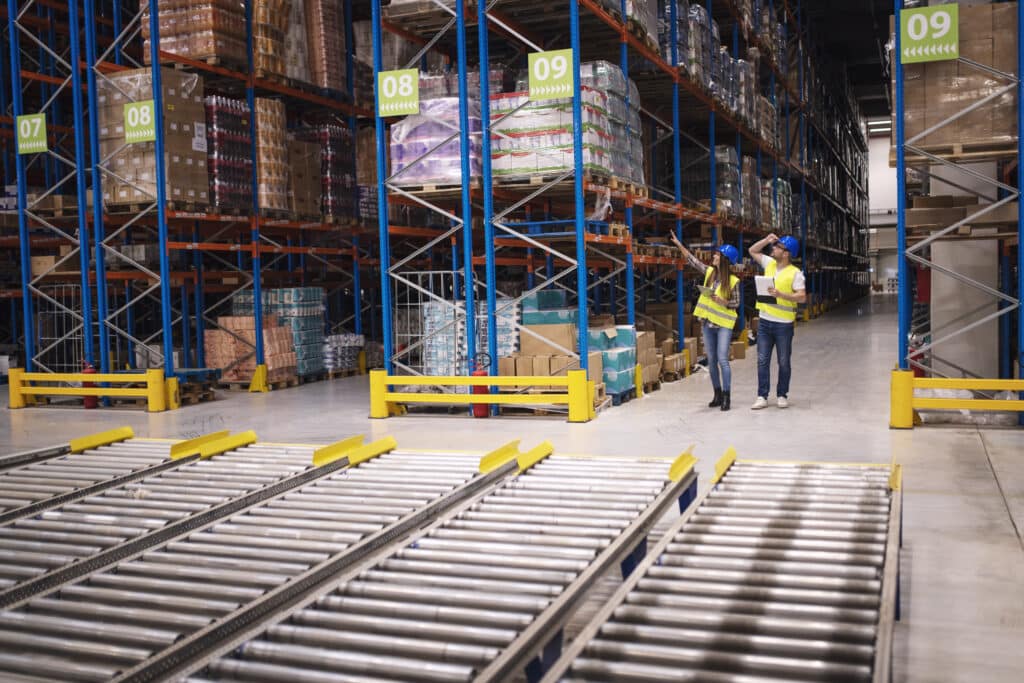
The logistics industry plays a crucial role in ensuring the effective movement of goods from manufacturers to consumers. Warehouses, where the inventory is stored and maintained, are the backbone of the logistic process. These warehouses are operated behind the scenes and used as strategic storage hubs for various products.
Warehousing – The Foundation of Logistics
When talking about the logistics industry, one cannot ignore the significance of warehouses. These are the fundamental and essential components of the logistics space. Here, the goods are kept before distribution, often forming a centralised storage facility hub. These facilities include accommodating products ranging from consumer goods to industrial equipment, making effective storage solutions paramount for seamless operations.
Importance of Shelving Systems
Almost every warehouse will have a shelving system. These are versatile structures, offering efficient utilisation of vertical space, which in turn increases the storage capacity of the warehouse. A warehouse with a shelving system can store 20 times more goods than one which lacks shelving. Shelving solutions come in various types, such as from long-span shelving, to archive storage and mobile shelving systems, each responsible for specific storage requirements. There’s also a much wider range of storage solutions you may consider, such as:
a. Pallet Racking: Pallet racking can handle large quantities of goods, thus, making it an ideal choice for warehouses. It makes the storage and retrieval of palletized products easy and convenient, optimises space, and ensures quick access to inventory.
b. Heavy-Duty Shelves: To store bulkier items or goods that are of irregular shapes, heavy-duty shelves are ideal, offering the necessary support and durability. These are designed in a way that can hold heavier loads, making them vital for the logistics industry.
c. Mobile Shelving Systems: Mobile shelving systems offer solutions to limited space and more inventory. It enhances the storage capacity of the stores. By eliminating the need for fixed aisles, these systems provide access to only one aisle at a time, efficiently using floor space.
Temperature-Controlled Storage
Many products and goods i.e. perishable food items or pharmaceuticals are temperature sensitive. They can be damaged when they are not stored at the optimal temperature. In this instance, carefully climate-controlled storage units will be used to ensure that goods remain fresh and intact throughout the supply chain.
Specialized Storage for Hazardous Goods
Some products are dangerous and potentially hazardous, demanding specific storage requirements and protocols to ensure safety. Certain industries cope with such hazardous goods. Hazmat storage solutions provide secure containment for dangerous substances, safeguarding both workers and the environment. Strict follow-up of safety
Embracing Technological Advancements
Modern logistics warehouses are adopting automation and advanced technologies increasingly, helping them to optimise storage and retrieval processes. The logistics industry is constantly being revolutionised, by advancements in technologies like robotics, automated storage and retrieval systems (AS/RS), and inventory management software. The efficiency is enhanced, and operational costs are reduced.
Conclusion
Efficient storage solutions are the backbone of the logistics industry, enabling the seamless handling and distribution of goods. As the logistics industry continues to evolve, embracing technological advancements will be key to revolutionising storage processes. With these advancements, overall efficiency will be enhanced, and timely deliveries to meet the demands of today’s global supply chain will be ensured.
 Locating a business to enhance the customer experience (MP3)
Locating a business to enhance the customer experience (MP3)  Developing skills in a large organisation through training and development (PDF)
Developing skills in a large organisation through training and development (PDF)  Building Human Resources to provide a foundation for growth (PDF)
Building Human Resources to provide a foundation for growth (PDF) 